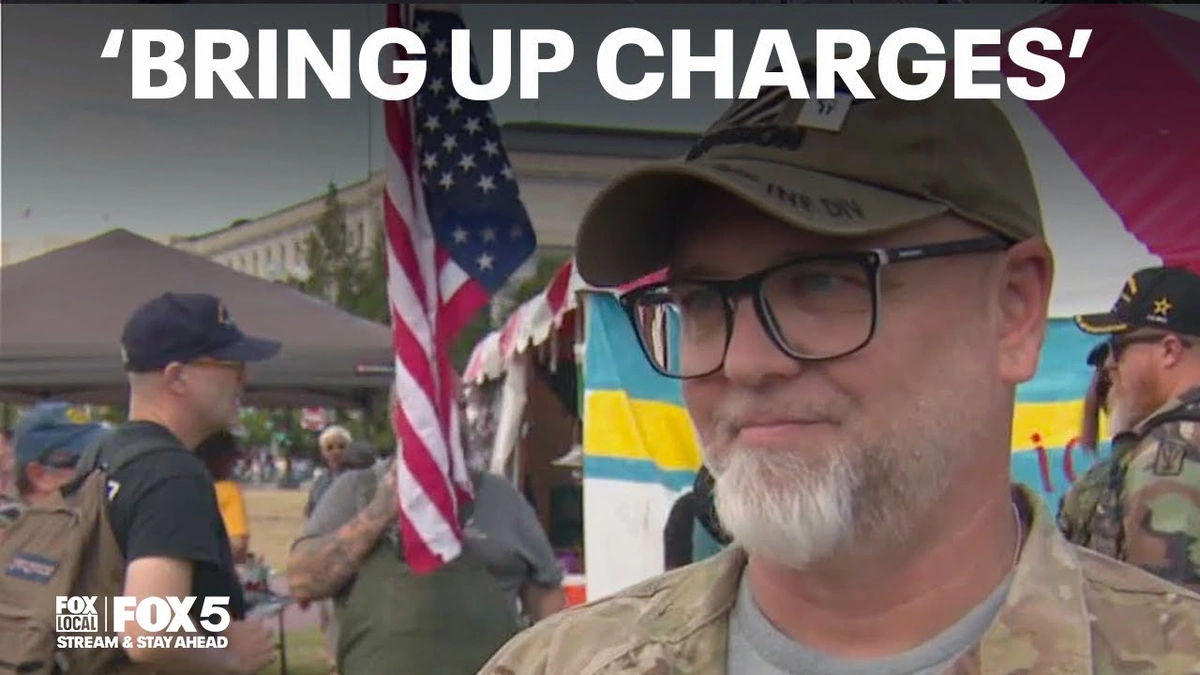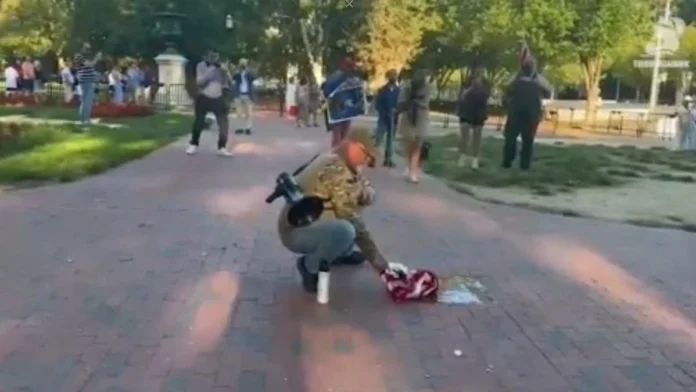It’s a scene that can ignite a firestorm of emotions: a veteran burning the American flag. But before we jump to conclusions, let’s dive into the why behind this powerful act. It’s far more than just disrespect, and understanding the nuances is crucial.
Understanding the First Amendment and Flag Burning

The First Amendment to the United States Constitution protects freedom of speech. But, here’s the thing: that protection isn’t absolute. The Supreme Court has ruled on numerous occasions about what constitutes protected speech, and flag burning falls into a particularly complex category. It’s considered symbolic speech, meaning it’s an action that conveys a political message. According to the landmark case Texas v. Johnson (1989), the Supreme Court held that burning the U.S. flag is protected speech under the First Amendment. This is something many people struggle with, and rightfully so.
So, why is it protected? The Court reasoned that prohibiting flag burning would suppress freedom of expression. The government can’t prohibit expression simply because society finds the idea offensive. This ruling sparked immense debate and led to attempts to pass constitutional amendments banning flag desecration. All such attempts have failed, leaving flag burning a legally protected, albeit controversial, form of protest.
The Veteran’s Perspective | More Than Just Disrespect
When a veteran burns the flag, it carries a particularly heavy weight. These are individuals who swore an oath to protect and defend the Constitution, even to the point of sacrificing their lives. So, why would they then engage in an act that many perceive as a betrayal of that oath? It’s essential to consider the multifaceted reasons behind such a decision. It’s rarely a simple act of disrespect; it’s often a deeply personal and political statement.
Many veterans who burn the flag do so as a form of protest against government policies, wars, or social injustices. They may feel that the government has failed to uphold the values that the flag represents. For example, a veteran might burn the flag to protest a war they believe was fought unjustly or to draw attention to issues like veteran homelessness or lack of access to healthcare. Let’s be honest — it is hard coming home and getting what was promised when signing up. It’s a visceral way to voice their discontent. Other times, a veteran burning a flag can be a form of mourning, a way to express the loss and disillusionment they’ve experienced as a result of their service. Think of it as a visible manifestation of the internal turmoil they face.
The Emotional Impact | Why It Hurts So Much
The American flag is more than just a piece of cloth; it’s a powerful symbol of national identity, unity, and sacrifice. It represents the ideals and values that the nation strives to uphold. Seeing it desecrated, therefore, can evoke strong emotional reactions, ranging from anger and outrage to sadness and disbelief. For many, especially veterans and their families, the flag represents the sacrifices made to protect the nation and its freedoms. When someone burns the flag, it can feel like a personal attack on those sacrifices.
The act can also be deeply divisive. It sparks passionate debates about freedom of speech, patriotism, and the meaning of the flag. What fascinates me is how a single image can instantly polarize opinion and trigger such intense emotions. It reveals deep-seated beliefs and values about what it means to be an American.
Finding Common Ground | Respectful Dialogue and Understanding
Navigating the complexities of flag burning requires a willingness to engage in respectful dialogue and try to understand different perspectives. Instead of immediately condemning the act, consider asking why. What is the individual trying to communicate? What are the underlying grievances that fuel their protest? Engaging in constructive conversation, rather than resorting to anger and condemnation, can lead to a deeper understanding of the issues at stake. And, it is not an easy feat. It takes courage and grace.
It’s also important to remember that freedom of speech, while protected, comes with responsibility. Exercising that freedom in a way that promotes understanding and minimizes harm is crucial for fostering a healthy democracy. This doesn’t mean that people should refrain from expressing controversial opinions. It means that they should do so in a way that encourages dialogue and avoids inciting violence or hatred.
Understanding the nuances of symbolic speech can be challenging, especially when deeply held beliefs and emotions are involved. Exploring the legal and ethical considerations surrounding flag burning can provide valuable insights into the complexities of the First Amendment and the ongoing debate about freedom of expression in the United States.
Moving Forward | A Call for Empathy
The image of a veteran burning the flag is undoubtedly a powerful and provocative one. It challenges our assumptions, evokes strong emotions, and forces us to confront difficult questions about freedom, patriotism, and the meaning of the American flag. Instead of reacting with immediate anger or condemnation, let’s approach the issue with empathy and a willingness to understand the motivations behind the act. By engaging in respectful dialogue and seeking common ground, we can navigate these complex issues and build a more united and understanding nation.
FAQ | Understanding Flag Burning and Veteran Perspectives
Why is flag burning protected under the First Amendment?
The Supreme Court has ruled that flag burning is a form of symbolic speech protected by the First Amendment.
What are some reasons why a veteran might burn the flag?
Veterans might burn the flag to protest government policies, wars, or social injustices. It can also be a way to express grief or disillusionment.
Is flag burning considered disrespectful?
While legally protected, flag burning is often viewed as disrespectful by many Americans, especially veterans and their families.
What can I do if I disagree with someone burning the flag?
Engage in respectful dialogue, try to understand their perspective, and express your own views without resorting to anger or condemnation.
Are there any restrictions on flag burning?
While the act itself is protected, there might be local laws regarding open burning that could apply.

